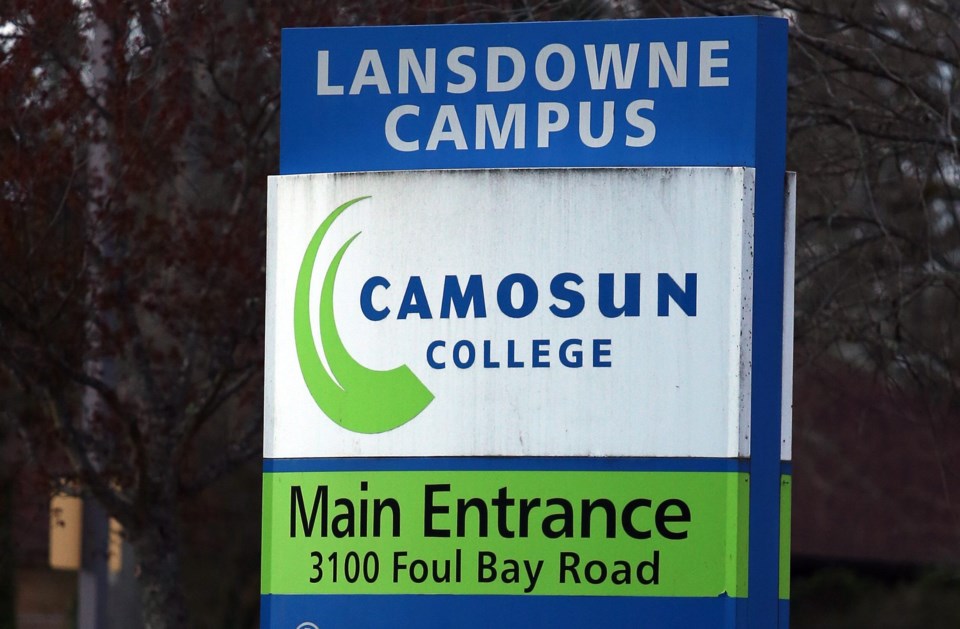Camosun College is reviewing its grade-appeal process to include human-rights concerns after three nursing students successfully appealed a failing mark for a course.
All three had followed Camosun’s multi-stage appeal process. They went first to their instructor, then to their department head and then on to the faculty dean. At all steps their appeal was denied.
They then went to vice-president, education, John Boraas, where they were successful.
Boraas said privacy concerns prevent him from being specific about the students’ appeal reasons.
He would say only they all involved human-rights issues.
Camosun received legal advice that it would lose if it stood by the poor grades and the three students subsequently went to the B.C. Human Rights Tribunal.
Boraas said the college is obligated to incorporate federal and provincial legislation and regulations on issues of human rights, sexual violence and sexual harassment.
“The reality for us has now changed,” Boraas said.
“The expectations that government has put in place for us are different now.”
He said those circumstances make a review of the grade-appeal process necessary.
But it was given a kick-start over the Christmas holidays after the three students appealed.
Under Camosun’s existing appeal process, the vice-president, education, has the option of convening a panel to consider whether an appeal is appropriate. If it is, the issue can be sent back to the dean for another look or sent outside the college for an independent assessment.
In this case, Boraas allowed the students to advance to the next level of their course.
Boraas said the students were also assigned three hours a week of mandatory tutorial sessions. Those sessions are in addition to normal course work.
All three students are now performing well, Boraas said.
He agreed that Camosun has responsibilities beyond fair treatment of its students when dealing with a medical program, such as nursing, because patient safety is at stake. “We are taking very seriously the preparedness and readiness for their profession,” he said.
“But our responsibilities are both to the profession that people are being trained for and also to the success and support of students.”
Some faculty members are upset that the three students were allowed to advance without a panel examining the issue. “This is a case where faculty are not thrilled with our response,” Boraas said.
He said faculty and students will be part of the review of how grades are appealed.
The Camosun College Faculty Association could not be reached for comment.
A Camosun College Student Society representative expressed support for the three students.
Mitchell Auger-Langejan, external executive member of the student society, said the move to incorporate issues of human rights into the process is important.
“We support changes to the appeals process to take into account those factors,” said Auger-Langejan.
“They really do affect students’ lives.
“Any changes in policy that are more fair to students and allow them to complete their education in a fair way, then we are in support,” he said.



